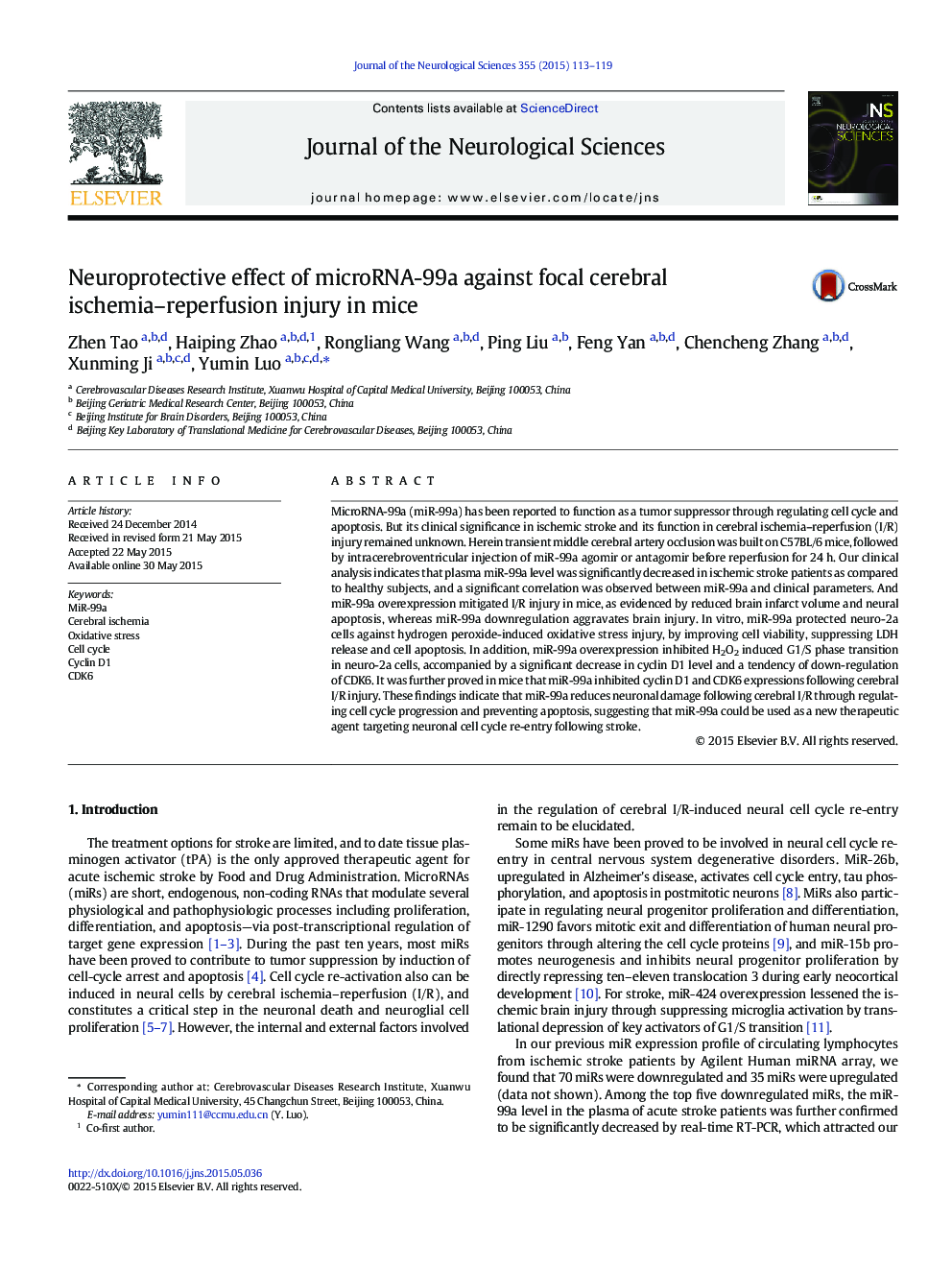| Article ID | Journal | Published Year | Pages | File Type |
|---|---|---|---|---|
| 1913308 | Journal of the Neurological Sciences | 2015 | 7 Pages |
•MiR-99a level in plasma of stroke patients was correlated with clinical parameters.•MiR-99a lessened focal cerebral ischemia–reperfusion injury in MCAO mice.•MiR-99a protected neuro-2a cells from oxidative stress injury induced by H2O2.•MiR-99a prevented apoptosis and blocked cell cycle progression in neuro-2a cells.
MicroRNA-99a (miR-99a) has been reported to function as a tumor suppressor through regulating cell cycle and apoptosis. But its clinical significance in ischemic stroke and its function in cerebral ischemia–reperfusion (I/R) injury remained unknown. Herein transient middle cerebral artery occlusion was built on C57BL/6 mice, followed by intracerebroventricular injection of miR-99a agomir or antagomir before reperfusion for 24 h. Our clinical analysis indicates that plasma miR-99a level was significantly decreased in ischemic stroke patients as compared to healthy subjects, and a significant correlation was observed between miR-99a and clinical parameters. And miR-99a overexpression mitigated I/R injury in mice, as evidenced by reduced brain infarct volume and neural apoptosis, whereas miR-99a downregulation aggravates brain injury. In vitro, miR-99a protected neuro-2a cells against hydrogen peroxide-induced oxidative stress injury, by improving cell viability, suppressing LDH release and cell apoptosis. In addition, miR-99a overexpression inhibited H2O2 induced G1/S phase transition in neuro-2a cells, accompanied by a significant decrease in cyclin D1 level and a tendency of down-regulation of CDK6. It was further proved in mice that miR-99a inhibited cyclin D1 and CDK6 expressions following cerebral I/R injury. These findings indicate that miR-99a reduces neuronal damage following cerebral I/R through regulating cell cycle progression and preventing apoptosis, suggesting that miR-99a could be used as a new therapeutic agent targeting neuronal cell cycle re-entry following stroke.
